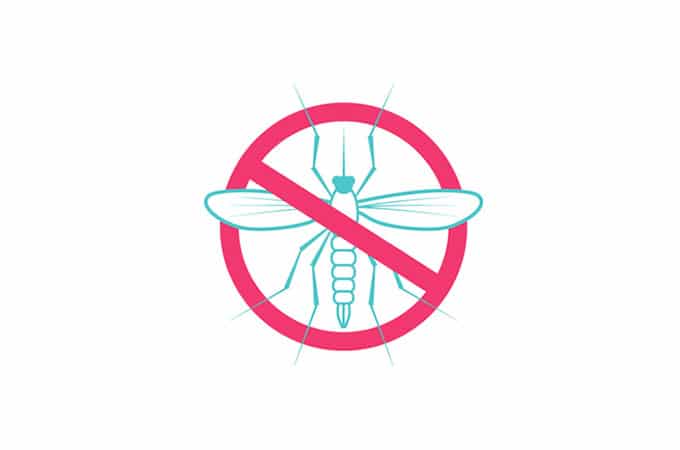The Zika virus is a relatively new concern for women and couples who are currently pregnant or trying to conceive. Due to the many unknowns about Zika and its relative newness in the United States, many people are unsure if they should be waiting to conceive. Shady Grove Fertility’s Executive Senior Medical Officer, Dr. Eric Widra, provided updated guidelines and recommendations based on recent information published by the Centers for Disease Control and Prevention (CDC). These recommendations are very conservative and suggest most women do not need to delay pregnancy. Proactive methods to prevent exposure along with acknowledgement of the risks are important during this time.
What is the Zika virus?
Zika is a virus that has been known for many years in Central and South America. It typically causes mild flu-like symptoms and, until recently, was considered unimportant from a public health perspective. It can be transmitted from person to person by mosquito bites and sex. In the last year, it has been linked to severe birth defects including microcephaly, if contracted during pregnancy. It has also been linked to a rare consequence of viral infections known as Guillain Barré syndrome.
Where has Zika occurred?
The list of areas where Zika infections caused my mosquitos has occurred is maintained by the CDC.
There have been questions about going to a country where Zika is endemic, not epidemic, and the risk of such travel. The CDC reviews the difference between endemic and epidemic Zika, along with the Zika risk in countries with endemic Zika. While the risk of getting Zika in countries where Zika is endemic is likely lower than in countries where Zika is epidemic, it is not zero. Patients planning on becoming pregnant should consider postponing nonessential travel to these areas and if they do choose to travel there they should strictly follow steps to prevent mosquito bites and protect themselves against sexual transmission of Zika virus.
Countries where Zika is endemic:
- Southeast Asia
- Brunei, (Myanmar), Cambodia, Indonesia, Laos, Malaysia, Maldives, Philippines, Thailand, Timor-Leste (East Timor), Vietnam
Countries outside Southeast Asia where Zika is endemic:
- Africa
- Angola, Benin, Burkina-Faso, Cameroon, Central African Republic, Côte d’Ivoire, Egypt, Ethiopia, Gabon, Guinea-Bissau, Kenya, Liberia, Mali, Mozambique, Niger, Nigeria, Senegal, Sierra Leone, Somalia, Tanzania, Togo, Uganda, Zambia
- Asia
- Bangladesh, India, Pakistan
- Pacific Islands
- Easter Island, Vanuatu
Recommendations for Women Who are Pregnant:
For women who are currently pregnant:
- Avoid travel to any Zika-affected areas.
- If you must travel to an affected area, practice careful mosquito bite prevention.
- If a male sexual partner has traveled to an affected area, he should use condoms during vaginal, oral, or anal sex for the duration of the pregnancy to avoid sexual transmission of the virus.
- If a pregnant woman is exposed to Zika, with or without symptoms, she should be tested.
Recommendations for Men and Women Who are Trying to Conceive:
For men and women planning or trying to conceive:
- Avoid travel to any Zika-affected areas.
- If you must travel to an affected area, practice careful mosquito bite prevention.
- For men who must travel to a Zika-affected area, we recommend strong consideration of sperm cryopreservation prior to travel. If engaging in sexual activity in an affected area, condoms should be used during vaginal, oral, or anal sex.
- For men and women with a diagnosis of Zika, both should wait 6 months from the event to try and conceive. Avoid intimate sexual contact or use condoms for the 6 months
- For men and women with possible exposure to Zika through travel or sexual intercourse but no symptoms, they should be tested for the Zika virus. If the testing is negative wait 8 weeks from the event and repeat testing. If the testing remains negative, you may proceed with treatment or attempting pregnancy.
Testing for Zika
Testing is now available for men and women who have been in an area with active transmission of the Zika virus. It is recommended that both men and women be tested and observe the waiting periods as outlined above before trying to conceive. Testing, while available, may not be universally available, and the cost is not universally covered by insurance. Please talk with your doctor or healthcare provider.
While it is time for concern, we certainly don’t think it is time for panic, just sensible acknowledgement of the risks. For the most up-to-date information, please visit the CDC website.
If you are concerned about the Zika virus and pregnancy and experiencing infertility, please call Shady Grove Fertility’s new patient center at 1-877-971-7755.
Editors Note: This post was originally published in June 2016 and has been updated for accuracy and comprehensiveness as of June 21, 2017






